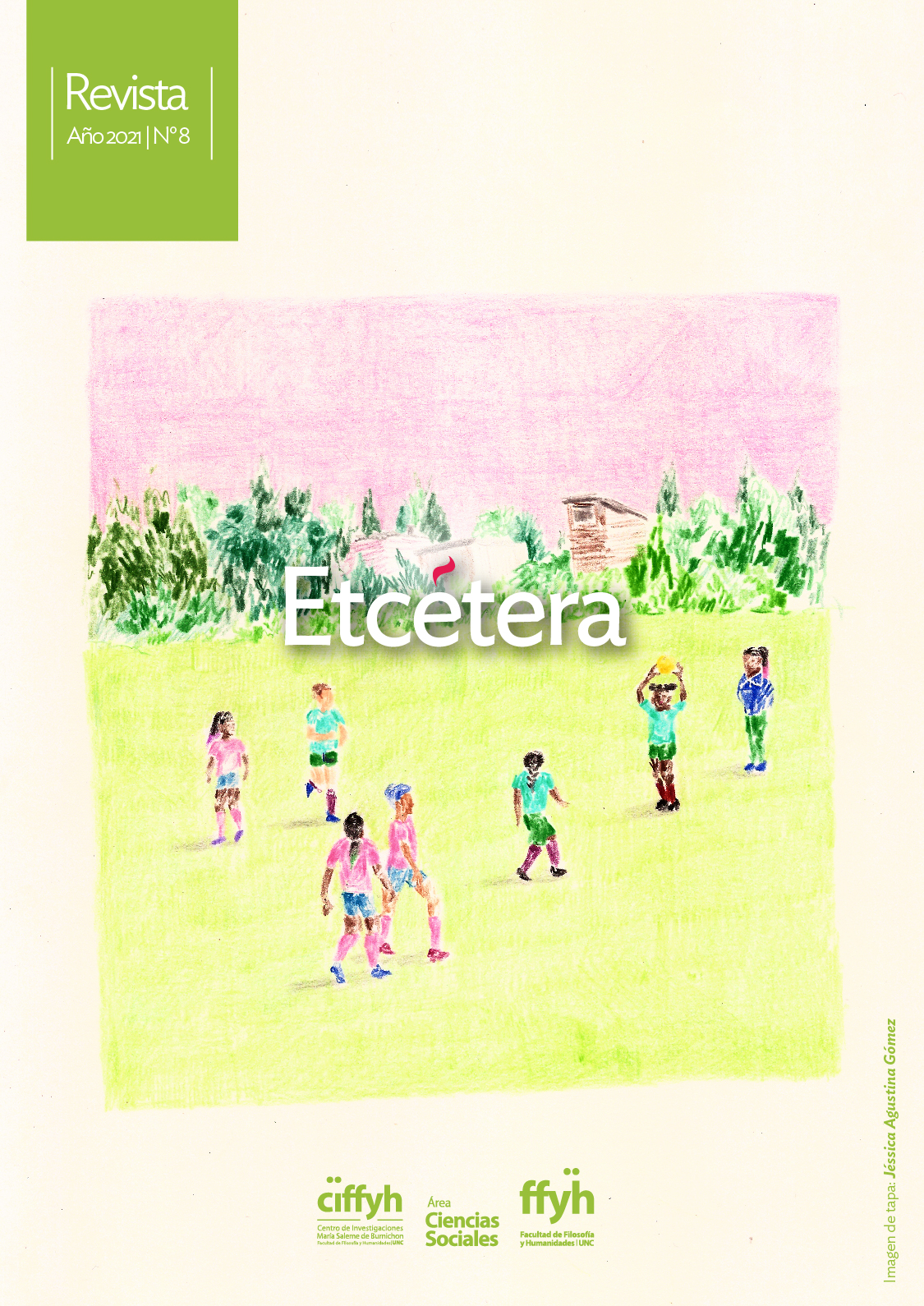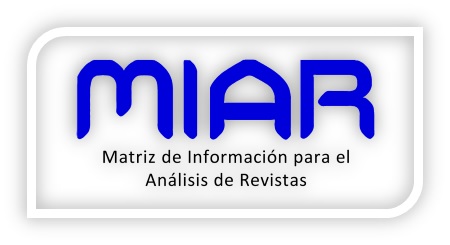The "experience". Epistemological paths of a journey of situated research on lesbian activism
Keywords:
Epistemology, Experience, FeminismsAbstract
This paper presents some debates about epistemological and methodological challenges to feminist research. It shows the richness of a category from Feminist Studies, the "experience", which brings depth to the study of both social groups and personal trajectories, as it challenges the dichotomous division between macro/micro, action/structure, and actor/system. The starting point is a research on lesbian activism. That which we consider a theoretical overcoming of the approach to the "the singular" and "the common", the paper focus on the dialogues between queer theory, sociology, epistemology, anthropology, psychoanalysis, among others. We will pay attention to the "standpoint theory" to account for the knotting of the numerous social relations that constitute each person, studying those spaces of experience that serve as a place of inscription of collective meanings and dissident political subjectivation, which build a particular way of being “lesbian”.
Downloads
References
Alcoff, L. y Potter, E. (eds.) (1993). Feminist epistemologies. Nueva York: Routledge.
Bach, A. M. (2010). Las voces de la experiencia. El viraje de la filosofía feminista. España: Biblos.
Cano, V. (2015). Ética tortillera. Ensayos en torno al éthos y la lengua de las amantes. Buenos Aires: Madreselva.
De Lauretis, T. (1992 [1984]). Alicia ya no. Feminismo, Semiótica, Cine. España: Ediciones Cátedra S.A.
Deleuze, G. y Guattari, F. (2004 [1972]). Mil mesetas. Capitalismo y esquizofrenia. España: Pre-textos.
Falquet, J. (2009). Rompre le tabou de l’hétérosexualité, en finir avec la différence des sexes: les apports du lesbianisme comme mouvement social et théorie politique. Genre, Sexualité & Société, núm. 1. Francia: Université Paris 13. En línea : https://journals.openedition.org/gss/705
flores, v. (2013). interruqciones. ensayos de poética activista. Neuquén: La Mondonga Dark
Haraway, D. (1995 [1991]). Ciencia, cyborgs y mujeres. La reinvención de la naturaleza. Valencia: Ediciones Cátedra.
Hankinson Nelson, L. (1993). Epistemological communities. En: Alcoff, L. y Potter, E. (eds.), Feminist Epistemologies, pp. 121-159. Nueva York: Routledge.
Harding, S. (ed.) (2004). The feminist standpoint theory reader. Intellectual and political controversies. Nueva York y Londres: Routledge.
Hill Collins, P. (2004). Black sexual politics. African Americans, gender and the new racism. Nueva York: Routledge.
hooks, b., Brah A., Sandoval C., Anzaldúa, G., Levins Morales, A., Bhavnani, K., Coulson, M., Alexander, M. J. y Mohanty, C. T. (2004). Otras inapropiables. Feminismos desde las fronteras. Madrid: Traficantes de Sueños.
Martin, B. (1993). Lesbian identity and autobiographical difference[s]. En: Abelove, H., Barale, M. y Halperin, D. (eds.), The lesbian and gay studies reader, pp. 274-294. Nueva York y Londres: Routledge.
Mattioli, M. (2013). ¿Cómo trabajar los testimonios en las investigaciones ? Reflexiones teóricas y metodológicas en torno al caso del aborto. Trabajo presentado en X Jornadas de Sociología. Buenos Aires: UBA. En línea: https://cdsa.aacademica.org/000-038/268
Mogrovejo, N. (2012). Cómo pensar la genealogía lésbica. En línea: http://normamogrovejo.blogspot.com/2012/11/como-pensar-la-genealogia-lesbica-norma.html Consultado en junio de 2021.
Mohanty, C. T. (2003). Feminism without borders. Decolonizing theory, practicing solidarity. Durham y Londres: Duke University Press.
Moya, P. (2011). Who we are and from where we speak. TRANSMODERNITY: Journal of Peripheral Cultural Production of the Luso-Hispanic World, vol. 1(2), pp. 79-94. Estados Unidos: School of Social Sciences, University of California. En línea: https://escholarship.org/uc/item/2md416qv
Perlongher, N. (2016). Prosa plebeya. Ensayos 1980-1992. Buenos Aires: Ediciones Colihue.
Rich, A. (1986). Notes toward a politics of location. En: Blood, bread and poetry: selected prose 1979-1985, pp. 210-231. Nueva York: W. W. Norton.
Stone-Mediatore, S. (1999). Chandra Mohanty y la revalorización de la experiencia. Hyparquia, vol. X. Buenos Aires: Asociación Argentina de Mujeres de Filosofía. En línea: http://www.hiparquia.fahce.unlp.edu.ar/numeros/volx/chandra-mohanty-y-la-revalorizacion-de-la-experiencia
Downloads
Published
How to Cite
Issue
Section
License
Copyright (c) 2021 Etcétera. Revista del Área de Ciencias Sociales del CIFFyH

This work is licensed under a Creative Commons Attribution-NonCommercial-ShareAlike 4.0 International License.
Aquellos autores/as que tengan publicaciones con esta revista, aceptan los términos siguientes:
- Los autores/as conservarán sus derechos de autor y garantizarán a la revista el derecho de primera publicación de su obra, el cuál estará simultáneamente sujeto a la Licencia de reconocimiento de Creative Commons que permite compartir, copiar, distribuir, ejecutar y comunicar públicamente la obra, siempre que: 1) se cite la autoría y la fuente original de su publicación (revista, editorial y URL de la obra); 2) no se use para fines comerciales; 3) En caso que se transforme o genere una obra derivada a partir de esta obra, deberá compartise bajo las mismas condiciones establecidas por esta licencia.
- Los autores/as podrán adoptar otros acuerdos de licencia no exclusiva de distribución de la versión de la obra publicada (p. ej.: depositarla en un archivo telemático institucional o publicarla en un volumen monográfico) siempre que se indique la publicación inicial en esta revista.
- Se permite y recomienda a los autores/as difundir su obra a través de Internet (p. ej.: en archivos telemáticos institucionales o en su página web) luego de la publicacion del articulo, lo cual puede producir intercambios interesantes y aumentar las citas de la obra publicada. (Véase El efecto del acceso abierto).
- El titular del copyright es Etcétera. Revista del Área de Ciencias Sociales del CIFFyH.
















